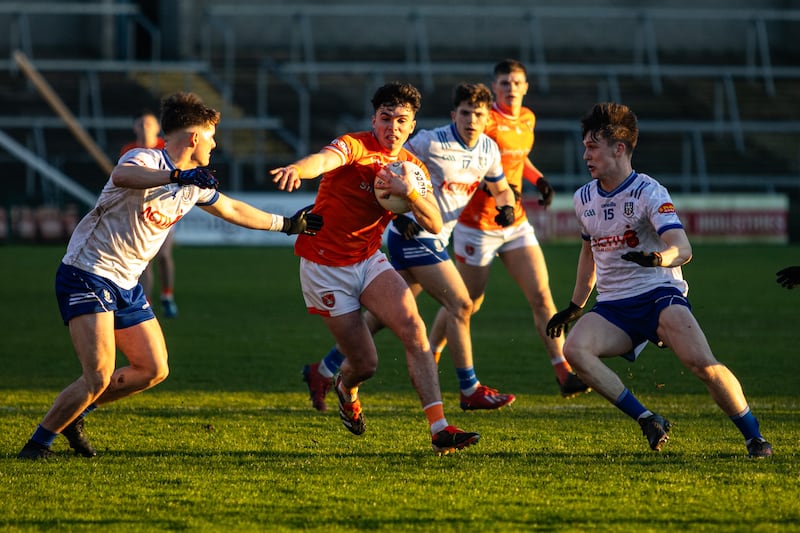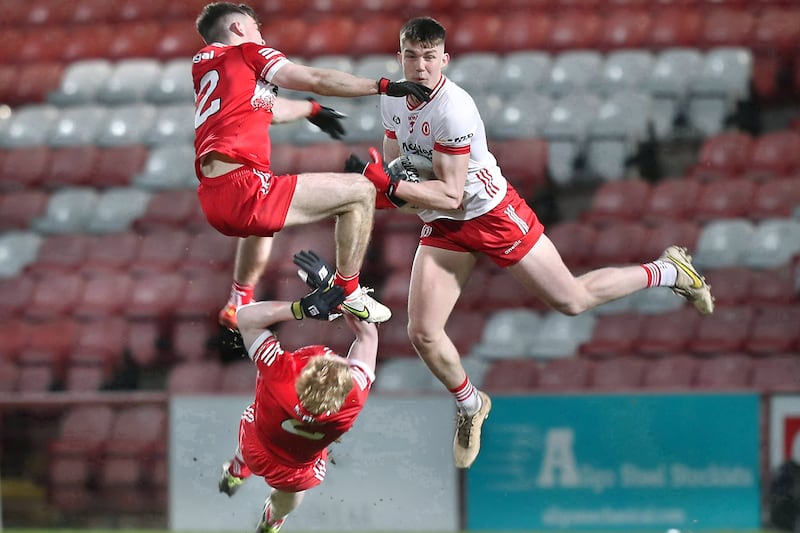Tyrone secretary Dominic McCaughey has revealed that supporters had more difficulty in getting their hands on tickets for this year’s Super 8s clash with Donegal at Ballybofey than for the All-Ireland final.
In his report to tonight’s annual convention, McCaughey vents his anger at the fact that only 10 per cent of the MacCumhaill Park stadium’s capacity was made available to Red Hand fans.
“It was most disappointing to only receive a 10 per cent allocation of the official capacity of the stadium, when only two counties were participating,” he says.
“In 2018 we were most fortunate that for almost all of the championship games in which Tyrone participated there was good availability of tickets.
“There will always be limited availability for an All-Ireland final, but even for this year’s final we are confident that every genuine supporter or patron was accommodated with a ticket.
“The only cause for complaint arose for the All-Ireland quarter-final fixture in Ballybofey when only 1,600 tickets were available through the county’s ticketing system, while season tickets (approx: 1100) were allocated directly to their holders.”
McCaughey also has concerns over the financial strain placed on supporters, and particularly families, due to the increased number of championship games.
This year, Tyrone had to negotiate their way through four rounds of Qualifiers, before taking on the new round robin Super 8s series which has replaced the All-Ireland quarter-finals, playing ten championship games in total.
“Taking into account that, this year, Tyrone had two games at home, three games in Croke Park and five games at venues ranging from Enniskillen to Carlow, it is easy to see how the financial outlay mounts up.
“When these costs are accumulated within a short time-frame, families can certainly experience financial strain.”
Administrators are also facing additional headaches with the distribution of tickets for games which are coming thick and fast, on a weekly basis.
“There is also a fairly major effect on clubs’ officers, administrators at all levels in the Association, and of course supporters and patrons when a county enjoys, or endures, a series of ten championship games in such a condensed period of time.
“For the supporters and patrons who follow the team, there is a significantly high financial cost including that of, admission tickets, hotel accommodation and meals, and travel.
“One of the biggest impacts on club officers’ and administrators’ workloads is that of the management of the provision of match tickets for the general membership.
“While the introduction of the ‘season ticket’ a number of years ago, and the general availability of match tickets online and via Centra and SuperValu shopping stores, has eased the demands of the general public, a club’s members still expect to be able to source their tickets from the club.
“This means that the club officer with responsibility for tickets, must accept and collate the members’ requests, place the order with county office, collect the tickets when they become available and make payment, allocate and distribute the tickets to the members, accept payments and record the transaction details.
“All of these tasks can be readily managed for a one-off game, and where there is no limit on the availability of tickets, and where members do not make late requests, but, when these circumstances change and games are arising on a weekly basis, the situation becomes very difficult.”







